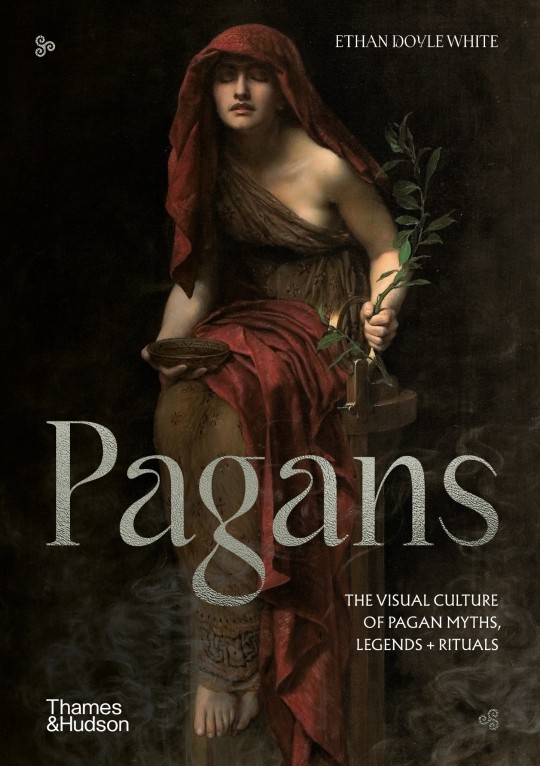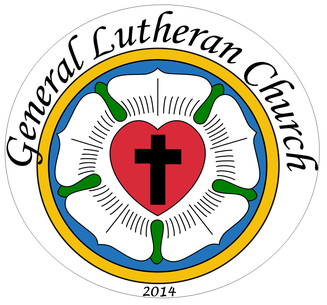#deism
Text
What's your opinion on religious influences in Dragon Ball?
There is a lot of Judeo-Christian imagery (white dove, Upa scaring Devilman with a cross, Goku as a Moses-type figure, etc.) I don't like it when Seventh-Day Adventist fearmongers like Little Light Studios call Goku a Lucifer-type figure.
Beerus and Heles look like Egyptian gods
Comment on your thoughts in the reply section and like, share, reblog, and boost. U can do this matter your religion.
Dragon Ball is a mix of different religions †☪︎✡☯☸ૐ⛩️🀀𓋹⚛
I'm not gonna talk about Journey to the West since everyone knows that Dragon Ball was influenced by that story.
Ki comes from Eastern religions. A comparison to make is the Jewish concept of ruach tamah, described by rabbis as similar to ki and as the source as Samson's power
Judeo-Christian imagery. Super Saiyan is similar to the glowing state of Stephen (my interpretation, I'm Christian btw). Goku is a "SON UNDER THE SUN". Goku is also a Moses-type figure, like Superman. A white dove also appears aside of Android 16. That's the symbol of the Holy Spirit. Upa also scares Devilman with a cross. Magic users (with the exception of Baba) are all evil. Baphomet-like demons are always the villains. Goku's values are also Judeo-Christian/Islamic. Dragon Ball has a god hierarchy like Marvel, but Zalama who is above all, just like the One Above All in Marvel, has a similarity to Yahweh of Judaism and Christianity or more like Aether of the Hypsistarian cult.
The Kais relate to the Buddhist Heavenly Kings and Hindu deities. Beerus and Heles take inspiration from Egyptian paganism.
State your opinions and thoughts in the reply section.
#dragon ball#dragon ball z#dragon ball super#anime#religion#christianity#religion and entertainment#egyptian paganism#buddhism#hinduism#shinto#shintoism#paganism#rip akira toriyama#akira toriyama#toriyama's influences#islam#judaism#confucianism#taoism#atheism#catholicism#catholic#orthodox christianity#protestant#anglican#mythology#deist#deism
11 notes
·
View notes
Text
Varieties of Theism
Agnostic Theism
Whereas atheism and theism deal with belief, agnosticism deals with knowledge. The Greek roots of the term combine a (without) and gnosis (knowledge). Hence, agnosticism literally means “without knowledge.” In the context where it is normally used, the term means: without knowledge of the existence of gods. Since it is possible for a person to believe in one or more gods without claiming to know for sure that any gods exist, it's possible to be an agnostic theist.
Monotheism
The term monotheism comes from the Greek monos, (one) and theos (god). Thus, monotheism is the belief in the existence of a single god. Monotheism is typically contrasted with polytheism (see below), which is a belief in many gods, and with atheism, which is an absence of any belief in any gods.
Polytheism
Polytheism is the belief in the existence of multiple gods. The prefix ''poly'' means many, so polytheists believe that there are multiple divine forces in existence. The Greek and Roman pantheons are excellent examples of these, as they consist of many gods that govern different aspects of nature and essences of humanity. Some argue that Christianity is a polytheistic religion because of the worship of the Trinity. However, the Father, Son, and Holy Spirit are all aspects of a single God, making it a monotheistic religion.
Deism
Deism is actually a form of monotheism, but it remains distinct enough in character and development to justify discussing separately. In addition to adopting the beliefs of general monotheism, deists also adopt the belief that the single existing god is personal in nature and transcendent from the created universe. However, they reject the belief, common among monotheists in the West, that this god is immanent—presently active in the created universe.
Henotheism and Monolatry
Henotheism is based upon the Greek roots heis or henos, (one), and theos (god). But the term is not a synonym for monotheism, despite the fact that it has the same etymological meaning.
Another word expressing the same idea is monolatry, which is based on the Greek roots monos (one), and latreia (service or religious worship). The term appears to have been first used by Julius Wellhausen to described a type of polytheism in which just a single god is worshiped but where other gods are accepted as existing elsewhere. Many tribal religions fall into this category.
Pantheism
The word pantheism is built from the Greek roots pan (all) and theos (god); thus, pantheism is either a belief that the universe is God and worthy of worship, or that God is the sum total of all there is and that the combined substances, forces, and natural laws that we see around us are therefore manifestations of God. The early Egyptian and Hindu religions are regarded as pantheistic, and Taoism is also sometimes considered a pantheistic belief system.
Panentheism
The word panentheism is Greek for “all-in-God,” pan-en-theos. A panentheistic belief system posits the existence of a god that interpenetrates every part of nature but which is nevertheless fully distinct from nature. This god is, therefore, part of nature, but at the same time still retains an independent identity.
Impersonal Idealism
In the philosophy of Impersonal Idealism, universal ideals are identified as god. There are elements of impersonal idealism, for example, in the Christian belief that "God is love," or the humanist view that "God is knowledge."
Autotheism
The term ''autotheism'' is composed of two parts: the prefix, ''auto,'' and the root/suffix combination, ''theism.'' ''Auto'' means ''self, one's own, by oneself.'' So, autotheism is the belief that one is a god themself. It has also been described as someone who mistakes one's inner voices as God's voice within them.
Kathenotheism
The belief that there are many gods, but only one deity at a time should be worshipped, each being supreme in turn.
Ditheism (or Duotheism)
The belief in two equally powerful gods, often, but not always, with complementary properties and in constant opposition, such as God and Goddess in Wicca, or Good and Evil in Zoroastrianism and Manichaeism. The early mystical religion Gnosticism is another example of a ditheistic belief of sorts, due to their claim that the thing worshipped as God in this world is actually an evil impostor, but that a true benevolent deity worthy of being called "God" exists beyond this world.
Misotheism
The belief that gods exist, but that they are actually evil. The English word was coined by Thomas de Quincey in 1846. Strictly speaking, the term connotes an attitude of hatred towards the god or gods, rather than making a statement about their nature.
Dystheism
The belief that gods exist, but that they are not wholly good, or possibly even evil (as opposed to eutheism, the belief that God exists and is wholly good). Trickster gods found in polytheistic belief systems often have a dystheistic nature, and there are various examples of arguable dystheism in the Bible.
Animism
Animism is the idea that all things—animate and inanimate—possess a spirit or an essence. First coined in 1871, animism is a key feature in many ancient religions, especially of indigenous tribal cultures. Animism is a foundational element in the development of ancient human spirituality, and it can be identified in different forms throughout major modern world religions.
Totemism
Totemism is a system of belief in which man is believed to have kinship with a totem or a mystical relationship is said to exist between a group or an individual and a totem. A totem is an object, such as an animal or plant that serves as the emblem or symbol of a kinship group or a person. The term totemism has been used to characterize a cluster of traits in the religion and in the social organization of many primitive peoples.
#theism#paganism#greek polytheism#varieties of theism#animism#totemism#dystheism#misotheism#ditheism#duotheism#kathenotheism#autotheism#panentheism#pantheism#henotheism#deism#monotheism
192 notes
·
View notes
Text
The Metaphysical
God is completely unknown.
We know nothing about God, but we have an intrinsic gut feeling that the universe is far from all that really exists. We also know nothing about God, but we affirm the necessity of his presence in our metaphysics so that our whole value system can be self-sufficient and not depend on any of the religions and worldviews that now form the foundation of social life and prevent humanity from being liberated. So when we say that God is totally unknown, we are affirming a God who cannot be comprehended in any way, and in doing so we are setting aside all existing ideas about God. The only self-evident thing we can say for sure is that God has no gender.
God forms in and of himself the whole world.
By discarding existing notions, we manifest our own picture of the world based on inner intuition, which organically complements the ideology of our movement. Knowing nothing about God except the intuition that he exists, we claim that God shapes the world within itself out of itself. In this way we give the world a value far greater than that of the clay pot as seen by the major religions of humankind.
God is the world and contains it within himself, but he also exists outside the world, space and time.
Since God forms the world out of himself and contains it within himself, God is the world, and the world is a direct extension of God. But God, who formed the world within himself, is still as superior to the inner world, being outside of time and space, existing within the world.
The world is real in relation to itself just as a dream is real in relation to itself.
Taking the world as one of dreams does not in any way diminish its reality, for in a realistic dream we can still live, act on our inner gut, and make the right decisions. The desire to escape from the dream only puts one in a loop of constant escape from one dream to another, while the absolute unwillingness to do anything makes any progressive reforms aimed at improving the quality of being in the world unwelcome as well.
God is as real about the world as the dreamer is real about his dreams.
Just as to the deep realistic dreamer the real world seems unreal, so to us the existence of God as that reality that transcends our world may seem unreal. But we argue that God is as real about the world as a sleeper is real about his dreams, meaning that each of us is the one God who watches his own dream.
The world and all forms of life in it are tangible extensions of God.
Assuming that God is the world, and the world is a direct extension of God, we affirm that accordingly all life forms in the world are extensions of God.
Each self is a continuation of: the common self of all life forms; the unconscious world; God.
As all forms of life are extensions of God, in reverse order, each individual is an extension of his species, each species is an extension of the evolution of living organisms, all living organisms are extensions of the world, and the world is a direct extension of God. Who were we before we were born, and who will we be when our physical bodies die? The best answer is that we were everyone and everywhere.
Each self is in the here and now exactly as much as it is in every other self and in the totally unknown God.
Understanding that our Self is not confined to our body or to the material world, but is everywhere, like a single ocean divided by islands, and even right now in God as the supreme reality outside the world, gives us the advantage of not having to seek salvation in another world, and not having to make the effort to escape it into a higher reality, because we are already everywhere and everywhere, and our goal is to form our own ideal world wherever we have the opportunity.
God does not intervene in the inner workings of the world, such as the laws of nature or evolution. The world exists according to its own internal laws. By asserting that the world and each of us is an extension of God, we nevertheless manifest that God, as a reality outside the world, has no effect on what happens inside the world, where the internal laws of the world apply.
Evolution and the inner processes of the world are not the result of God's will.
Thus, all of the inner history of the world, all of evolution, and all of life's forms, though a direct extension of God, are not the result of God's will as an out-of-world reality.
The world, divine at its core, is not divine in its forms and manifestations.
A world that is an extension of God, and thus fundamentally divine, is not divine in its inner processes and forms of manifestation, because the inner processes of the world are the result of the will of the world itself and not of God as an out-of-world reality, whereas the fact that the world was formed was the will of God as an out-of-world reality. The inner laws of the world are foolish and unconscious, and it can be said that they were all just a way to create intelligent life forms that, as an extension of God, will be able to change the world and themselves already as they see fit. We cannot abandon the ship of this world, but we can make it fit for acceptable life.
Nature, acting by crude laws, produces many forms of life, forced to multiply suffering as in a nightmare dream. The presence of sex is a direct consequence of evolution, a consequence of the crude processes of the inner world.
The existence of sex and the current reproductive organization of society creates the deepest injustice. All who are close to being sexless, who cannot accept their social sex or their gendered or sexual bodies, are discriminated against by sexually mature people of both social genders. Women are forced to suffer all their lives for the ability to give birth and then in the throes of giving birth to lifelong suffering creatures. Natural reproduction is a source of oppression and suffering for women. Perfect equality of perceptions with equal bodily circumstances - which would also mean equal treatment between people regardless of gender and age - is impossible with different body designs. Angelomorphism proposes a unified design of the sexless angelomorphic (angel-like) body.
The goal of Angelomorphism as a movement is to abolish social and biological sex, to create all the necessary conditions for the transformation of humanity into an angel-like race, which we call angelomorphs.
The abolition of the social sex is impossible without the abolition of the biological sex. Overcoming global problems is possible by artificially continuing human evolution. We must strive to create new beings more beautiful than the current generations of humans. The trait of the new humans is defined in Scripture: "They shall not marry and trespass, but live as angels of God. The more steps humanity takes to eliminate gender differences, the greater the chance of soaring on angelic wings from the ladder of evolution.
Technology is the way to lead humanity to angel-like, sexlessness, freedom, and unity of consciousness.
Angelomorphy suggests that technological abolition of sex and changing the architecture of society's reproductive system in favor of artificial reproduction will have the strongest emancipatory effect on the oppressed populations, improve the overall standard and quality of life, and a unified body model and voluntary united consciousness will qualitatively change the system of social relations.
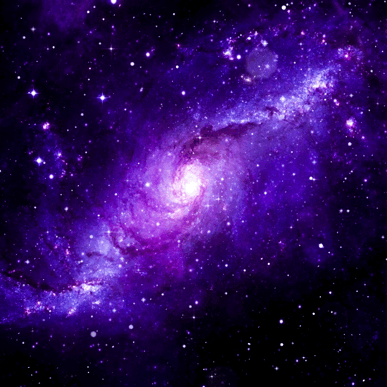
#angelomorphia#metaphysical#God#panendeism#deism#pandeism#pantheism#panentheism#nondualism#christianity#gnosticism#genderless
7 notes
·
View notes
Text
What I Believe
I know I’ve mentioned being a deist on here once or twice, but some of you might be wondering what do I actually mean by that? Well, I’ve been asking myself the same question a lot recently. Maybe the holiday season just gets me thinking about these kinds of things.
I think my own theology boils down to the distinction between General, Special and Direct Revelation and my personal policy towards each. So here are my Three Principles of Deist Theology - or Deology, if you will…
If there is a creator deity, then that deity’s existence should be inferable from General Revelation (observation of creation and rational inquiry).
Special Revelation (scripture, prophets, received doctrine ect) is only reliable in so far as it is supported by evidence or rational argument.
Direct Revelation (divine visions, mystic experiences ect) is only valid for the individual who directly experiences it. No one else is obligated to believe it.
Hope this is all relatively clear. Feel free to submit questions or comments. I'm very open to workshopping all these for better clarity.
4 notes
·
View notes
Text
[A Christian] is always fighting on at least two fronts [concerning the relation of God with creation]. When one is among Pantheists one must emphasize the distinctiveness, and relative independence, of the creatures. Among Deists —or perhaps in Woolwich, if the laity there really think God is to be sought in the sky— one must emphasize the divine presence in my neighbour, my dog, my cabbage-patch.
C.S. Lewis (Letters to Malcolm — Chiefly on Prayer, page 99)
5 notes
·
View notes
Note
I really loved your blog but then coming across your hatred against Islam was really sad. You look very ignorant when you hate on anything without doing any research.
This is a very old ask, and I am not sure you would still be reading my answer, anon, but I can't say I hate Islam anymore, at least not the Quranic version of it.
After a terrible crisis last October where I had to question everything I knew about the world, about myself, about reality, about other people, about the very nature of existence, I studied every possible source of knowledge to do away with my uncertainties. This included occultism and spirituality, religion, philosophy, and some science. One major principle that I have acquired is that the only true source of truth accessible to us as humans is reason and rationality. Everything else is secondary (which includes science) and occult spirituality, which is based on neither reason nor senses, is at best conjecture based on merely the opinion of men through their personal experiences. Even science is, in some ways, empirical conjecture due to the limitations of empirical evidence, but a far more accurate one than spirituality as it at least employs empirical evidence.
However, reading the Quran, much of Islam is rather surprisingly based on reason rather than spirituality or mysticism that we can never be certain of. It even encourages reasoning and says humans can never be sure of the unseen knowledge (which to me would include how Quran itself describes the creation of humanity and the world, and also what happens after death including heaven and hell), and everything it says about God makes sense to me as well. I have always believed in God, as a deist. The existence or nonexistence of God was a question that I settled many years ago, and the rational conclusion was the existence of a god similar to Spinoza's God, but my understanding has never been in line with Panentheism like Spinoza, nor Pantheism. How the Quran describes the nature of existence has actually been quite insightful, so I agree with the theology, metaphysics, cosmology, and ontology of it that all make sense to me rationally.
I must say I continue to hate the version of Islam upheld by most Muslims, but the Quran actually seems to condemn it itself, and not necessarily the violence of it, but the source of their beliefs. It explicitly condemns believing in Hadith as Sunni and Shi'a Muslims do and the Hadith is where most nonsense and irrationality comes from, as well as much of the sexism, even though the Quran treats men as the default humans as well.
As for violence, Quran encourages war in self defense and permits only retaliation, which I can't say I have ever disagreed with. What I disagree with is that despite there being 'no compulsion in religion', that only applies to this world as Muslims are ordered not to fight or kill people simply for disbelieving in Islam, yet those same disbelievers are threatened with hellfire and scared with other frightening and traumatising details of a rather grim end. Isn't fear mongering a form of coercion as well, though not a physical one?
I disagree with the concept of sin altogether, especially if it's enforced by the law, as it goes against free will and free thought. I don't see why alcohol or fornication or adultery should be condemned, for instance. Morality is deeply personal and I have always been very lax regarding it, as a hedonist, and even secular morality is too much for me, since I find it more limiting than anything.
Yes, I now respect Islam more than any other religion and it is the only religion that I think is mostly based on truth through rationality, but I can't say I am a Muslim — yet. I haven't finished reading the Quran, nor have I finished my study. There is so much I have yet to learn, so only time will tell! All I can say is I haven't ruled it out completely. If I am ever to believe in any religion, it will be Quranist Islam, unless I find an even better one. I still have some questions, mostly about the status of women and about the laws made by the Quran and the ethics of them that differ from mine, and until and unless they're resolved, I will remain a deist.
3 notes
·
View notes
Text
Sources for thesis
Bonjour citoyens,
I am looking for resources for my thesis. I am going to write about Robespierre’s Cult of the Supreme Being (and to what extent is it is a product of Enlightenment philosophy). Can be in English or French.
Merci beaucoup!
10 notes
·
View notes
Text

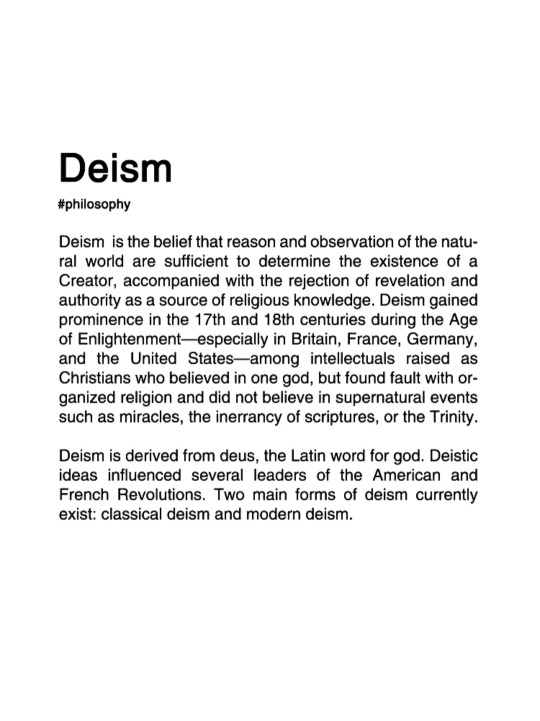
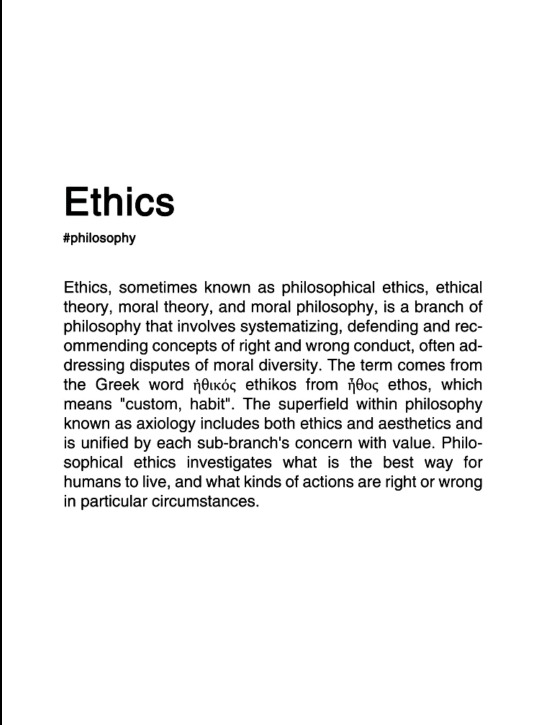
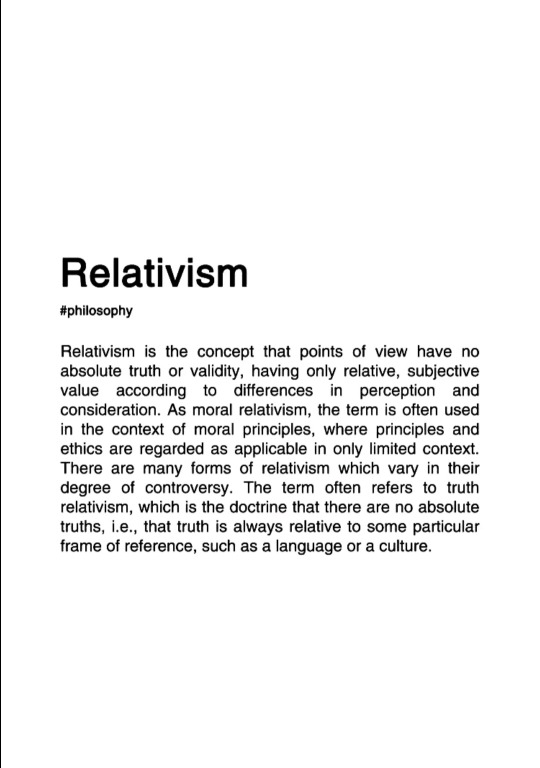
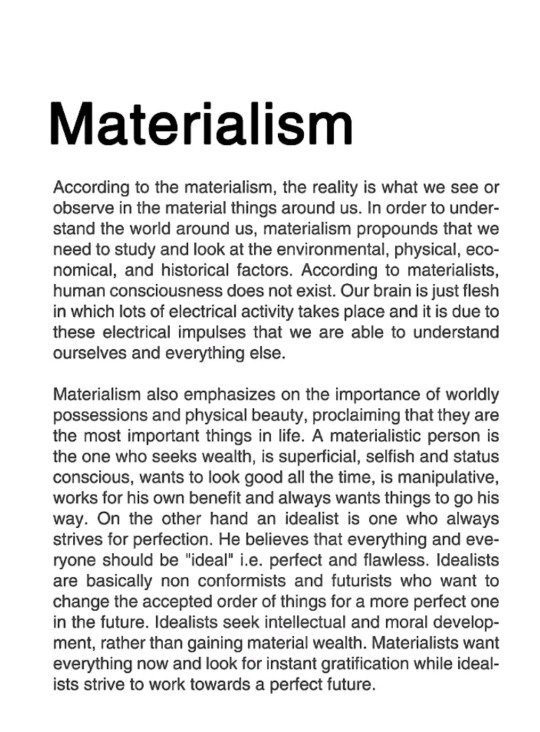


#essentialism#relativism#materialism#pantheism#ethics#deism#literature#english lit#english literature#philosophy#girl blogger#metaphysics
3 notes
·
View notes
Text

Every day we stay farther from the light. 💯💯💯💯💯💯
#care bears#dank memes#90s nostalgia#nostalgia#children's media#kids shows#atheism#deism#epistemology#lulz
4 notes
·
View notes
Text
Alternative Creation Theory No. 1: Theistic Evolution
By Donald Whitchard
Genesis 2:17,Romans 5:12-21,1 Corinthians 15:21-22,Genesis 1:1-3,John 1:1-4,Colossians 1:16-18
Summary: The first theory of creation apart from Scripture teaches that God used evolution as part of the creative process. Is this a viable explanation for our origins? What does science and the Bible have to say about this idea?
Our look at the first of the four alternative…
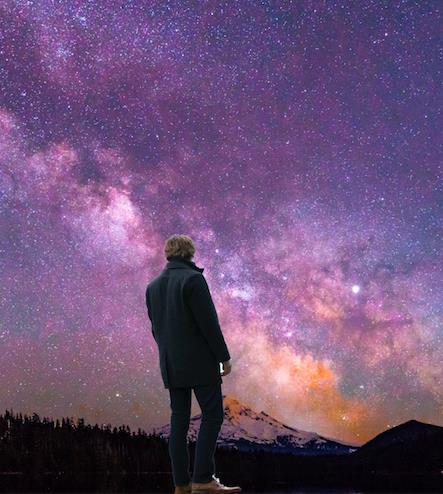
View On WordPress
2 notes
·
View notes
Text
God
I pushed my mind as far as it could go. With drugs, starvation, near death experiences, huge periods of reflection and introversion. I wanted to understand something that me, as a materialist and scientific rationalist, couldn't understand. Why is there there this consciousness, this uniqueness? The closest anyone ever came was giving a primate that could do sign language treats, thus prompting it. There is nothing on par with human consciousness. I say that as an environmentalist. I say that as someone who understands that our treatment of nature as expendable will cause our extinction.
Yet here I was with a problem. Tool use in animals, I found out about it. Beavers constructing dams, chimps using sticks to get ants and so on. None of that compares to the singular intelligence of humans. So one species out of 8.7 million can go into space. Can nullify nature. Alright, there is no God?
When I was dying in the ICU, and a couple times before from epileptic seizures, I saw the nature of God as much as anyone could. It's without gender. It isn't anything we could ever understand, I certainly couldn't. But somehow it brought what exists into being. I kept hearing this repeating message, "There's bad so good can exist." Repeated and it leveled me. I woke up like a different person. Of course I fell by the wayside later on but that's another story.
Again:
It is not evil, it is not good
It is ambivalent to the trials and tribulations of mankind
It offers nothing but endlessly more lives
It doesn't ask anything of you because It's nature is ours
It understands but needs no worship
It wonders how the Big Bang doesn't confirm It's existence
What people understand as free will is much more free
Everything is recycled, conserving the law of conservation
It's existence precludes to the Big Bang initiating
2 notes
·
View notes
Text
If reincarnation is true, then what lessons am I supposed to learn in this life?
Have I not learned enough? I'm tired of it all. It doesn't matter if I'm supposedly one of god's strongest warriors (if there is truly a god, that is, I'm a deist), to have been given so many troubles (lessons) along the years.
I just want to live a carefree and happy life, is that too much to ask?
1 note
·
View note
Photo

As of 3.14.2023…. Submissions are now open for. Pandeism: An Anthology of Worlds Unseen To be published in 2024. Send your piece to [email protected] #Pandeism #PandeismAnthology #Anthology #WorldsUnseen #Art #Artwork #Poetry #Essays #Articles #AIArt #Scales #Wavelengths #Religion #Belief #Theology #Philosophy #Pantheism #Deism #Panentheism #Panendeism #God #Creator #Design #PiDay #Pi #Submissions #Welcome https://www.instagram.com/p/Cp5jNLLL_d-/?igshid=NGJjMDIxMWI=
#pandeism#pandeismanthology#anthology#worldsunseen#art#artwork#poetry#essays#articles#aiart#scales#wavelengths#religion#belief#theology#philosophy#pantheism#deism#panentheism#panendeism#god#creator#design#piday#pi#submissions#welcome
2 notes
·
View notes
Text
If the God is a tribal, racial, national, or sectarian archetype, we are the warriors of his cause; but if he is a lord of the universal itself, we then go forth as knowers to whom all men are brothers.
Joseph J Campbell, The Hero With A Thousand Faces.
#philosophy tumblr#philoblr#mythology#religion#philosopher#joseph campbell#english literature#God#deism#morality#belief structure#theology#theosophy#dark academia#life quotes
10 notes
·
View notes
Text
3 Questions That Deists Can't Answer... Or can they?
youtube
I don’t really talk about my deism online much, ‘cuz frankly I’m not interested in proselytizing, but I recently stumbled on this vid and wanted to respond. Strangely, the video’s comment section has been disabled, so I’m gonna inflict my freelance theology (deology?) on you poor saps.
I’d actually recommend watching the full vid to get the proper context for for my answers.
(Disclaimer: please don't track down and harass this person. I'm just doing this as a fun intellectual exercise)
1. Who is ‘active’ right now?
The premises of this question seems faulty to me. Why does anyone need to be ‘active’? To dust off an old analogy, if I build a watch and stick a battery in it, the watch will continue ticking whether I’m there or not.
Surely any Being with the knowledge and power to create the universe can design it in such a way that's it's able to operate independently without constant supervision.
2. Why did God create the universe?
Short answer: I don't know, and I'm fine with that. Being a deist doesn't require me to have an answer for every question about the nature of reality. That said, there's any number of reasons why a Being might create a universe without communicating directly with it's inhabitants.
Perhaps They're running somekind of complex experiment and are still waiting on the results before doing anything else, or They created the universe as a kind of cosmic art piece. Perhaps They just needed somewhere to keep Their beetle collection?
3. Is there an afterlife?
Again, I don't know and that's okay. That said, let’s speculate…
If there's no afterlife, maybe it's because the mortal minds aren’t built to handle eternal conscious existence without utterly breaking; maybe letting us blink out of existence is simply the most merciful option?
If there is an afterlife, why does it automatically follow that there's judgment? Maybe we just get reincarnated, maybe we merge with the Godhead, who knows?
If there is judgement, surely an omniscient and perfectly just Being would take into account our individual circumstances and not punish us excessively for actions where we had no reasonable way of knowing any better?
I realize my last two answers are rather speculative but I think they demonstrate there’s a myriad of logically consistent ways a deist could respond to those questions.
If you’re interested in listening to more of my weird theological ramblings, let me know and I’ll be happy to oblige.
1 note
·
View note

